Wyniki wyszukiwania
90 results for query CO2
Reports(39)
-
Heating transformation 2030 | Small district heating systems

87.5% (463 out of 529) of all district heating systems in Poland do not have the status of efficient systems. They must change this if they want to maintain access to public aid in the future and continue to provide Poles with heat at a reasonable price.
23.11.2017 -
The last bell for district heating in Poland

District heating in Poland urgently needs to be modernised. Negotiating transitional periods for EU legislation has so far allowed difficult decisions to be postponed. However, the deadlines are running. A comprehensive review of district heating systems is necessary.
24.10.2017 -
Polish energy sector 2050 | 4 scenarios

What will be the result if Poland keeps its energy mix based on coal, introduces nuclear power or promotes renewables? Forum Energii analysed four different scenarios for the development of the Polish energy sector over the next 30 years. Report presents the economic, social and environmental implications of their implementation.
22.9.2017 -
Revenues from ETS auctioning as source of financing for low-emission modernization in Poland
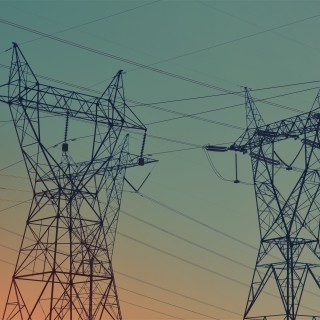
Revenues from auctioning of the national pool of ETS allowances may become the major source of financing for low-emission modernization of energy sector in the coming decade (2021-2030).
8.6.2016 -
COP24 in Katowice | Manual

COP24 - the climate summit in Katowice will be the largest gathering in the world under the auspices of the United Nations this year. The Forum Energii has developed the Manual, which allows its users to orientate in the international negotiations on climate. It contains set of tips on how to get involved in the process, how to positively influence the negotiations and build the image of Poland.
10.7.2018 -
Energy transition in Poland | Edition 2018

Poland still has the least diversified mix of energy sources in the EU. However, we have been observing a decline in the share of coal in favor of gas and RES. This is, to a small extent, associated with a decrease in greenhouse gas emissions.
10.7.2018 -
Options for integration of the Polish energy market within the European Union

Forum Energii examined how the integration of the energy market, one of the priorities of the European Union, will affect wholesale electricity prices in Poland. Depending on the option to integrate markets (with which country the merger takes place and what is its capacity), the wholesale price of electricity in Poland may fall by up to 5%, i.e. by about PLN 8 per MWh.
21.3.2017 -
Efficient use of Modernization Fund

On October 24, 2014, the European Council established the Modernization Fund (MF) for years 2021–2030 supplied with revenue from the sale of 2% of the total pool of CO2 emission allowances. The instrument is to support the modernization of power system and the improvement of energy efficiency in EU Member States, where GDP per capita in 2013 was lower than 60% of EU average (in nominal terms).
25.5.2015 -
Offshore energy | Downwind or upwind?

Offshore can become a Polish specialty. It can be a source of cheap, clean energy and help to improve energy security. Implementation of this technology is possible if only government decision is taken. It is also important to speed up the process of obtaining permissions by investors and reduce investment costs.
28.11.2018 -
Poland's Energy Policy 2040 in the spotlight

Probable delays of the nuclear energy project, insufficient attention to energy costs and the risk of non-compliance with EU climate and energy targets – these are some of the comments of Forum Energii on the draft Poland’s Energy Policy.
15.1.2019 -
Why compensations of power prices can cause more harm than good

This is the first time such an unexpected turn of events has occurred in the energy sector. The government lost control of the strategic economy sector and seems surprised with the increase in prices and rising import of coal, gas and electricity. This unexpected situation has led to huge astonishment at a time when elections are imminent.
21.1.2019 -
Good heating practices from Denmark and Germany. Conclusions for Poland

Currently Poland faces a choice of long-term action plan in heating. As part of the Clean Heat project Forum Energii took a deep insight into experiences of Denmark and Germany, which significantly modernized their heat supply systems and improved air quality at the same time.
23.1.2019 -
Flexibility of the Polish power system | Diagnosis, potential, solutions

Flexibility of the power system means its ability to maintain uninterrupted operation under conditions of rapid and huge fluctuations in electricity consumption generation. It is an inherent part of the system design and control of its operation. In the analysis, Forum Energii puts forward solutions supporting the improvement of the national power system flexibility. In addition to reducing the costs of the power sector and the improvement in quality and reliability of the electricity supply, their objective is to reduce emissions by the power sector.
12.2.2019 -
Energy transition in Poland | Edition 2019

Growing imports of gas, coal and electricity. Increasing importance of gas in the energy mix and stagnation in RES. Increase in greenhouse gas emissions. These are the most important conclusions from this year's edition of the report "Energy Transition in Poland" prepared by the Forum Energii. Full report in English will be available soon.
9.4.2019 -
Clean heat 2030 | Strategy for heating
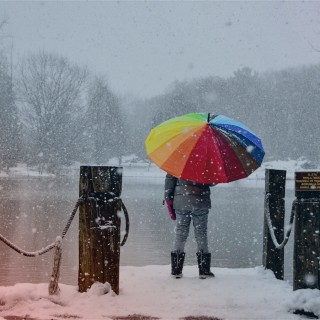
In the report "Clean Heat 2030. Strategy for heating" Forum Energii examined how to make heating no longer a source of smog in Poland by 2030 in a cost-effective and socially acceptable way. According to the analysis, health costs of pollutants can be reduced by 50% within a decade and dust emissions from individual heating by 91%. At the same time, CO2 emissions from heating will fall by 30%.
17.4.2019 -
From the Loire to the Vistula River | Three steps in planning the energy transition

Polish-French relations have become a bit difficult lately. When President Macron said in an interview that the Paris climate protesters should move to Warsaw because it is Poland that is blocking European climate ambitions, Poland was in turmoil. Leaving aside the emotions, it is worth looking at how the French are coping with the energy transformation. This is what the new analysis of the Forum Energii is about.
30.9.2019 -
Capacity market for review | Analysis of the results of three auctions

The three capacity auctions for 2021-2023 are behind us. What is the result? Has it been possible to encourage manufacturers to make new investments? Does the capacity market support diversification of the mix? How much does the capacity market cost? And finally, do the new EU regulations concerning emission standards mean the end of the capacity market in Poland?
22.10.2019 -
How to reach an agreement with Brussels on clean heat financing in Poland
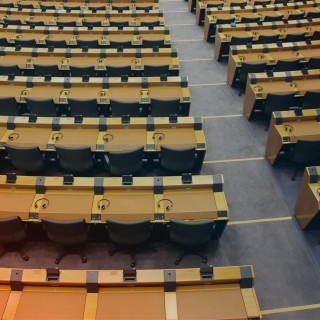
The entire heating sector in Poland, both in district heating systems and individually heated houses, consumes as much as 38% of this fuel. Therefore, it is easy to calculate the potential contribution of the heating transition to the reduction of CO2 emissions. The changes will benefit both the climate and citizens. Today in Brussels, orum Energii presents the Clean Heat 2030 report and demonstrates how improving air quality can help to save the climate.
13.11.2019 -
Heating in Poland | 2019 edition

While the battle for new climate targets for 2050 is under way in Brussels, many Polish cities and villages are already struggling with smog. Forum Energii gathered the most important data on heating in order to highlight the importance of heating, which is treated as a poor cousin of the energy sector.
16.12.2019 -
Energy transition in Poland | 2020 Edition

Electricity production from coal is decreasing, electricity imports are increasing; the importance of gas in the energy mix continues to grow, and renewable energy sources also play a more important role in the system. These are the key conclusions of the Forum's recent study "Energy transition in Poland". This is the third edition of the report, which presents key data on the state of the Polish energy sector and its changes.
11.3.2020 -
Anti-smog roadmap for Żywiec | Clean heat by 2030
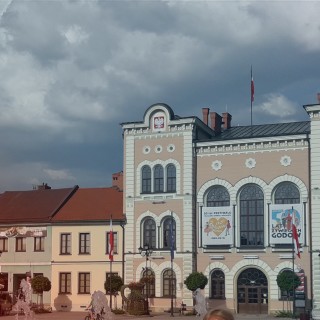
The challenge of fighting the coronavirus and the upcoming spring are distracting public attention from the problem of smog. But it will not disappear and as the boomerang will return in a few months with the start of the heating season. Especially to the towns and cities - where, like in Żywiec, more than 80% of heating energy comes from coal. In the latest report of the Forum Energii Anti-Smog Roadmap for Żywiec. Clean heat by 2030." we indicate what steps should be taken to get rid of smog by 2030. Now the report is available only in Polish, but English version will be published soon.
21.4.2020 -
Energy Boost for Poland
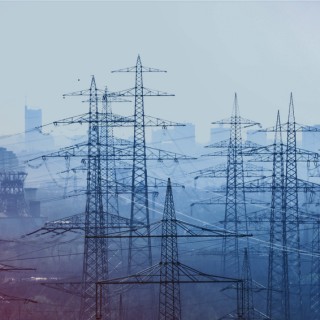
"Energy Boost for Poland" - a package for the economy prepared by the Forum Energii and Polish Confederation Lewiatan. Forum Energii and the Confederation Lewiatan call for the adoption of the "Energy Boost for Poland" package, which aims to mobilise available public and private funds for the Polish energy modernization. The implementation of the "Energy Boost for Poland" will stimulate investments worth over PLN 580 billion, which will create 240 thousand new jobs. Investments in the energy sector should be an element of the strategy for overcoming the crisis caused by the coronavirus pandemic.
11.5.2020 -
Renewables in heating

Heating and all of us in Poland have a problem. In domestic heating we rely on technologies from the 50s and 60s of the last century. In winter we have the worst quality air in the European Union. The society bears the enormous health costs related to air pollution - 120 billion PLN annually. We use primarily coal, which we are running out of, and we need to cover the costs of CO2 emission allowances. What next? Does coronavirus mean the end of dreams about clean air and the end of investments in modern technologies? Quite the opposite. Right now we should be looking at renewables.
13.5.2020 -
Poland: climate neutrality by 2050. Electrification and sector coupling

Electrification sets the direction of inevitable changes in many areas of our lives, including transport and heating. This direction will force a closer cooperation of various sectors of the economy with the future, completely different from today's power system. The integration of three industries — transportation, heat, and power generation— is the new concept for the operation of the entire energy sector. What can it look like in 2050? How will the necessary changes bring Poland closer to the goal of climate neutrality? Forum Energii in the new analysis convinces that a good strategy of sector coupling is a benefit for the Polish economy and society.
19.6.2020 -
Modernising the European lignite triangle
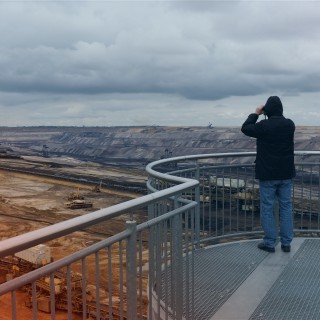
In a new study, Agora Energiewende and Forum Energii analyse the opportunity for a phase out from lignite and the effects this would have in the power sector in Poland, Czech Republic, and Germany by 2032. The study finds that an accelerated phase out is technically and economically feasible if coordinated among the three countries – provided, lignite is being substituted by renewable energy sources.
24.6.2020 -
How Poland can reach higher GHG emission reduction targets by 2030

At least 55%—this is the reductions target proposed by the European Commission for greenhouse gas emissions (GHG) by 2030. There is no turning back from increasingly demanding climate policy. In its latest analysis, Forum Energii shows how Poland can meet this policy.
4.12.2020 -
How to fill the coal gap? 43% RES by 2030?
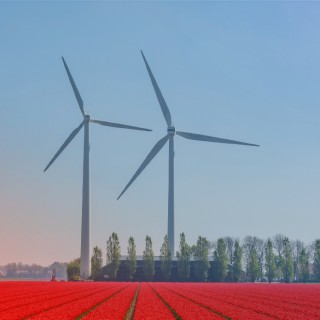
Poland has started phasing out coal. But while production is decreasing, CO2 emission allowances are becoming increasingly expensive. After 2025, when public support for outdated coal blocks runs out, energy companies will want to shut them down. With a decade, at least 10 GW of power may be lost from the Polish power system. How can this gap be filled?
26.10.2020 -
Heat electrification in Poland | The path to clean heat

Despite the government's declarations, progress in improving air quality in Poland has been poor. The rate of modernisation of buildings is slow, and public funds continue to support the replacement of old coal boilers with other coal-fired options, which other European countries have phased out. Meanwhile, a huge stream of European money will be flowing towards 'clean heat' in the coming years. In the newest analysis from the Forum Energii, we explain why it is worth betting on electrification of heating, identify which technologies have a future, and explore how this will affect the energy system.
26.1.2021 -
Energy transition in Poland | 2021 Edition

The production of electricity from coal in Poland is decreasing. For the first time in the country’s history, in 2020 coal’s share in the generation mix dropped below 70%. Renewable sources have slowly started to play a more important role in the mix, as well as gas. In the midst of the pandemic, domestic production has fallen faster than demand, and this gap is filled by energy imports. Poland remains the most expensive electricity market in the region.
17.3.2021 -
Dynamic and just | Network tariff design for the future
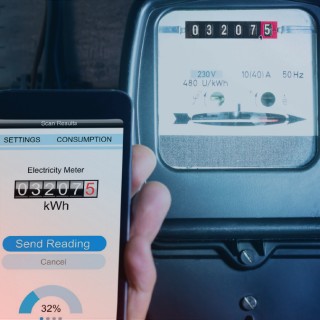
It is non-elastic, inefficient, unsuited to the changing realities of the energy market and the accelerating energy transition. The Polish model of network tariffs, i.e. the system of payments for delivering electricity to consumers, must be changed. In its latest report, Forum Energii, together with the Regulatory Assistance Project, analyses the principles that need to be considered when designing a new approach to tariffs.
6.5.2021 -
Green Gases | Biomethane and hydrogen in Poland

Over the next decades, the way Europe generates energy will change significantly. The goal of achieving climate neutrality means fossil fuels will be replaced by renewable energy sources within 30 years. Playing a key role will be biomethane and green hydrogen produced from RES—green gases—the development of which should already be spearheaded Poland. It is necessary to start planning the rational use of these gases in the economy because there probably will not be enough for everyone, and some sectors will be easier and cheaper to decarbonise through electrification. Poland is already working on setting the framework for their use in various sectors of the economy. The latest report by Forum Energii may help in preparing the strategy.
25.6.2021 -
The cost of carbon-free buildings and transport: the EU’s plans and Poland's challenges
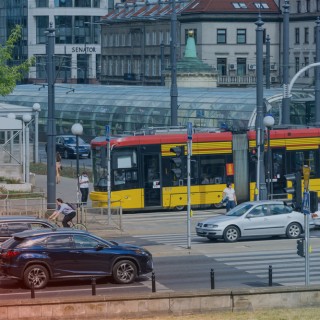
Work on the European Green Deal is accelerating. The main tool to achieve the new targets for reducing greenhouse gas emissions (GHG) in the EU will be the Fit for 55 package. Among its key elements is support for reducing CO2 emissions from buildings and transport. For Poland, this debate will be uncomfortable because over the course of three decades, not only has pollution not decreased but it has increased considerably in transport. This results in terrible air quality in Poland. Catching up, which is necessary for both climate reasons and the modernisation of outdated infrastructure and improvement of air quality, will be a challenge. The introduction of emission charges is intended to help. In its latest study, Forum Energii proposes measures to internalise the external costs of emissions in a way that is smooth, gradual, and socially acceptable.
2.7.2021 -
Visegrad Electromobility | State, perspectives and challenges
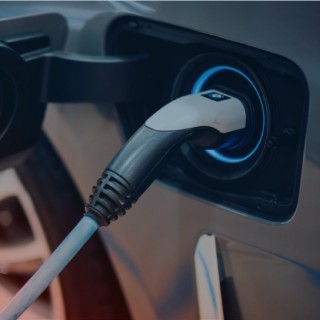
Transport accounts for the largest share of greenhouse gas (GHG) emissions in the European Union and is the only sector in which emissions have been increasing in recent years. The goal of climate neutrality and the increased reduction target for 2030 will not be achievable without a revolution in transport, as confirmed by the ‘Fit for 55’ package published by the European Commission. Given the years of a lack of effective policies in this area in the Visegrad countries, implementing appropriate measures to reduce emissions from transport becomes an urgent challenge. The hope is in electrification, especially of passenger cars.
22.7.2021 -
The district heating company of the future

Heat in Poland becomes more expensive. This is a result of an outdated business model in district heating, which rewards the company for as much heat production as possible and does not encourage to modernize the infrastructure. Meanwhile, consumers want to pay as little as possible for energy and heat. One of the key elements of the game for lower bills and lower CO2 emissions is becoming energy efficiency of heating systems and buildings. This completely changes the market conditions in which heating companies have to find themselves. If we do not want them to collapse - it is necessary to implement a new business model in district heating. Forum Energii writes about how it could look like in its latest report.
16.9.2021 -
Ready for 55%. A guide to financing the energy transition from 2021
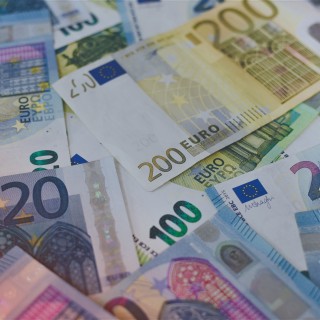
It’s PLN 560 billion [EUR 124 bln]. This is the amount Poland can allocate for the energy transition and phaseout of coal thanks to EU membership. This is a historic opportunity to shift the Polish economy—including the energy sector—to the low-carbon track and develop new industries. Although last year the Polish government declared the intention to pursue climate neutrality in line with EU policy, Poland’s decision-makers are anxious that the country will not be able to handle the challenge of decarbonisation. At the same time, the government’s relations with EU institutions are deteriorating, making talks about the EU funds difficult. So then, what resources are at stake?
9.11.2021 -
Clean heat as an engine for the Polish economy
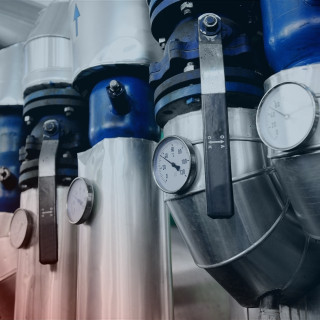
A new approach to heating is needed in Poland. It is currently a neglected area where the necessary changes and modernisation have been postponed for years. As a result, every winter we have the most polluted air in the European Union and the Polish district heating system is on the verge of collapse. The costs and scale of the investments needed are enormous, but further delays will lead to an even higher prices.
5.4.2022 -
Energy transition in Poland | 2022 Edition

On top of the economic slowdown in 2020 caused by the COVID-19 pandemic, 2021 was the next year when the cards dealt unexpected circumstances that diverged from the previous years of stability. In Europe, we experienced an energy crisis marked by sharp spikes in gas prices and CO2 emission costs. The wartime reality of 2022 means even more uncertainty and market volatility with energy security and independence from imported raw materials becoming the most important topics. Poland continues drifting along in the modernisation of the energy sector, as clearly indicated by data collected by Forum Energii in its annual report “Energy Transition in Poland”.
25.4.2022 -
Energy in Belchatow After Lignite
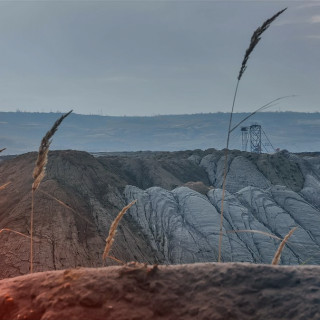
Transitioning Europe's largest coal power plant to a secure, resilient, affordable clean energy future. New study outlines a transition plan for Europe’s largest coal-fired power plant, located in Belchatow, Poland.
20.10.2022 -
Energy transition in Poland | 2023 edition

2022 was another year of unexpected events. Russia’s full-scale invasion of Ukraine changed Europe’s approach to fossil fuel imports, particularly from Russia. The resulting energy crisis triggered by high gas prices and the decline in nuclear and hydroelectric production led to record high energy prices across Europe. These events are changing the way European countries look at the energy transition. Meanwhile, the modernisation of the Polish energy sector is still very slow. An overview of the increasingly comprehensive data on the energy sector is published by Forum Energii in the sixth edition of the report ‘Energy Transition in Poland. Edition 2023’.
17.4.2023
Insights(46)
-
The meaning of the EC decision on Polish capacity mechanism

The year 2017 in the Polish power sector was marked by the preparation of the Capacity Market Act. The purpose of this regulation is to improve the profitability of Polish generators and to stabilize electricity supplies in the future.
7.2.2018 -
Why Paris is important?

The final phase of negotiations aimed at counteracting climate change has commenced in Paris. For the first time in 8 years there is a real chance to sign a global agreement. Two countries which have been the most sceptical till now and, at the same time, responsible for the biggest greenhouse gas emissions - the USA and China, have decided to limit the emissions and, among others, to develop renewable energy resources.
4.12.2015 -
The US is withdrawing from the Paris Agreement - what does it mean?

President Donald Trump has announced the retreat of the Paris Agreement and a wish to renegotiate the global agreement. Trump's decision has a political dimension and will not have an impact on Europe's energy strategy.
2.6.2017 -
A low-emission economy is a global model

The Paris Agreement is not only a success for the negotiators, but above all evidence of the growing interest in the development of a low-emission economy. According to the International Energy Agency, within 5 years RES capacity will constitute 60% of all power in the energy sector. Despite the fact that we are only talking about capacities and the real production of green energy is lower, it is a strong signal concerning the trend of energy production in the world.
16.11.2016 -
Is isolationism profitable?
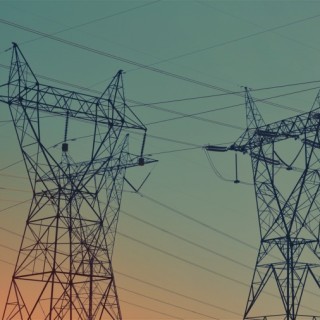
Below you will find opinion on the article concerning the text entitled "Import of cheap energy – higher costs for consumers" by Prof. Władysław Mielczarski, Ph.D. Eng., Łódź University of Technology, BiznesAlert, published on the CIRE website (in Polish) on the September 7, 2015.
16.9.2015 -
An EU anti-smog fund for Poland

Poland has some of the worst air quality in the EU. But fighting smog is expensive. The Modernisation Fund set up as part of the Emissions Trading Scheme could help here.
19.9.2018 -
Benefits from rising prices of CO2 emission allowances

Discussions about rising prices of CO2 emission allowances will not remain silent. When buyers pay more, the state budget gains. Poland should allocate these funds for low-carbon modernisation.
6.11.2018 -
Capacity market auction results | What next?

On November 15, 2018 PSE S.A. (state owned transmission system operator in Poland) held the first auction as part of the new scheme of remunerating capacity, that is a capacity market. The auction secured 22.7 GW for 2021 for a total amount of over 5 billion PLN (over 1,2 billion EUR). The cost of the capacity scheme appears significantly higher than the 4 billion the Ministry of Energy assumed for the year.
19.11.2018 -
Polish Energy Policy until 2040 | First commentary of Forum Energii
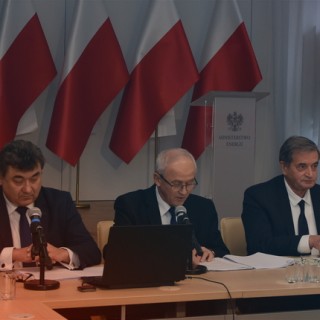
Today, the Ministry of Energy presented the State Energy Policy outline for consultation – a welcome announcement. We consider this a basis for public discussion, in which energy and environmental experts, business representatives and the broader society alike should participate. Energy affects all of our lives. Particularly at times of high energy prices we have to think about what to do next.
23.11.2018 -
COP24 - chance for Poland

During COP24, Poland will take over the presidency in global climate negotiations for a year. We will organize a summit for 200 million PLN for the fourth time - as the only one in the world. Success will give us prestige and prove that we can lead the global debate, while failure could result in distaste.
3.12.2018 -
How much is 550 g after the end of the European negotiations?

Negotiations on the EU regulation on the electricity market were concluded on December 19, 2018. For Poland it was the last and most controversial element of the Winter Package. Since 2017, the European Parliament and the Council discussed how to formulate regulations introducing a CO2 emission limit of 550 g/kWh of electricity produced. They are to apply to the capacity markets.
21.12.2018 -
Poland’s Energy and Climate Plan to 2030 – not sufficient EU perspective

The National Energy and Climate Plan 2021-2030 is the second strategic document for the Polish energy sector in addition to the long-awaited Poland’s Energy Policy until 2040. It will affect, among other things, investments in the energy sector, the implementation of our international commitments, energy security and improvement of air quality. Therefore, it should not only describe the current state of the Polish energy sector, but above all define future objectives and determine measures and actions to achieve them.
26.2.2019 -
Energy and climate targets until 2050

The national energy and climate plans and their assessment (objectives, instruments, financing) by the European Commission are a major qualitative change in the process of developing and implementing the EU energy and climate policy. Until now, energy and climate targets have been scattered across many pieces of legislation and are now linked by the overarching objective of climate neutrality in 2050 resulting from the Paris Agreement.
21.3.2019 -
Clean heat 2030 | Costs and benefits
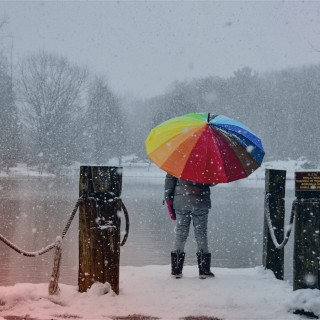
It would not be an exaggeration to say that domestic heating, both district heating and individual, is ahead of the historic bend. If we get into this turn right, we will be very successful, if not, the results may be significant.
20.5.2019 -
Power sector after the elections | Three tasks for the new government

The Polish energy sector is at a turning point. What will the next government find after the elections in the autumn? It will inherit not only electricity market, but also smog.
19.6.2019 -
Climate neutrality - empty watchword or concrete goal? | The French perspective

After June negotiations at the European Council, climate neutrality is no longer an abstract concept used by international experts, but is becoming a widely commented issue of public interest. As Michał Kurtyka, President of COP24 in Katowice, said at one of the meetings of Forum Energii: "Climate neutrality is a civilisational choice for Europe".
23.8.2019 -
Will the revenues from CO2 emissions disappear into thin air?

Low emission energy transition will cost up to 200 billion EUR in the years to come. This impressive amount may suggest that Poland cannot afford to invest in the power or heating sectors. Meanwhile, building a safe and reliable system is crucial for citizens, economy and climate. It is high time to look at potential sources of financing for low-carbon modernisation, and make sure they do not vanish into the budget.
28.8.2019 -
DEcarbonization in Germany 2030

Just before the UN climate summit in New York, the CDU/CSU and SPD coalition announced new ideas on how to achieve Germany's 2030 climate targets. For now, these are mainly national measures, but a similar discussion and perhaps similar solutions will emerge at European level. This will have a significant impact on the EU regulations concerning the energy sector, and thus also on Poland.
24.9.2019 -
1 GW of PV in Poland - this is just the beginning

In Poland we have just reached 1 GW of capacity in photovoltaic installations. Their growth rate has accelerated in the last several months. With the increasing economic attractiveness of photovoltaics, we are no longer wondering whether this development will be continued, but what are its limits. One thing is certain - we will wait much shorter for the next gigawatt and there will be at least a few drivers of this growth.
11.10.2019 -
Draft Poland's Energy Policy 2040 - new and better?

On the 8th of November 2019, the Ministry of Energy has presented an updated draft of Poland's Energy Policy until 2040. Yet, the adoption of the energy strategy will be the responsibility of the new government, including new ministries - the Ministry of State Assets and the Ministry of Climate. In our opinion, it is high time for Poland to address the climate and energy crisis. It is also important for us to start implementing the commitments made at the EU forum. The energy sector should be given a course in line with international trends, and not be allowed to float in a random direction.
29.11.2019 -
The last auction of this kind...

The fourth capacity market auction was held on the 6th of December 2019. Although there were some long-awaited new projects, the Santa Claus gift (which the capacity market support could be) was offered primarily to the existing coal-fired units, which in most cases decided to modernize. They were allowed to participate in the auction for the last time, as the European Union regulations will not allow such participation from next year.
11.12.2019 -
Climate neutrality – Poland is in favour and even against | A talk about the results of the last European Council
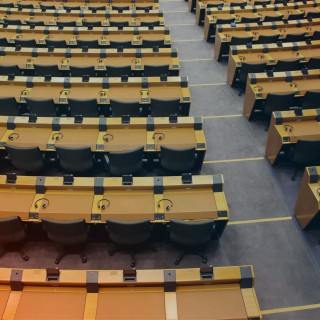
What actually happened at the recent European Council? Poland supported the goal of climate neutrality or quite the contrary? What can be expected in the coming months? Aleksandra Gawlikowska-Fyk and Joanna Maćkowiak-Pandera discuss the results of the European Council conclusions and its implications.
20.12.2019 -
Fighting on the wrong front. Polish gvernment intends to subsidise energy consumption instead of fighting energy poverty

The Ministry of State Assets announces subsidies to energy bills for people earning less than 5 000 net per month. The reaction to the increase in electricity prices in Poland has shown that politicians are so afraid of this subject. However, they have no good idea how to solve it.
3.3.2020 -
Will the coronavirus slow down or speed up the low carbon energy transition in Poland?

The world is in chaos. The priority is to stop the spread of the virus and contain the crisis. A stable energy supply is crucial - it's hard to imagine what would happen if there was no power or heat supply now. The million dollar question however, how will the current crisis affect the energy transformation in the long term?
21.3.2020 -
Investment in the energy sector as a remedy for the crisis

After a few weeks of the pandemic in Poland, we know for sure that the virus will infect the economy, even as we finally get rid of it ourselves. We need to act decisively right now. But we also need to think about economic recovery, in which the low-carbon transformation of energy has to take a central place. This is the time for bold decisions, so far postponed. A strategic rebuilding of the sector must be announced today to help society emerge from the crisis and provide long-term benefits.
1.4.2020 -
The EU is ready to co-finance our energy transformation ― what does the Polish government have to say?
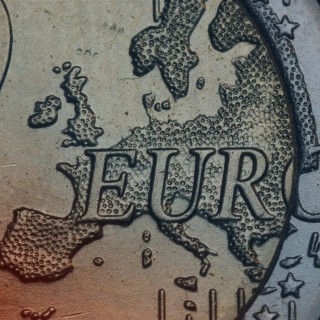
On 17 July the European Council will launch the final negotiations on the EU budget, unprecedented in scale and intended to pull the EU out of recession and give it a new boost. Since December 2019 Poland has been part of the EU discussions, trying to distance itself from climate neutrality in 2050. Although all other Member States agreed to it. For the time being, however, it seems that we may be one of the countries that will benefit most from the distribution of funds―we may gain over PLN 140 billion for the energy transition alone. Yet, the money will not be granted unconditionally. Poland needs to have a plan in place to achieve the EU's common goals―to commit to climate neutrality and to contribute to a 40% or even 55% reduction in emissions by 2030.
15.7.2020 -
Renewables in the Polish energy mix. Still not enough to meet the targets

The energy transformation has accelerated significantly. Thanks to the enormous cost reduction of solar PV and onshore wind, these technologies are increasingly being chosen by the private sector and households as an investment that allows for significant savings. In recent years, however, the development of renewable energy sources (RES) has depended on state policies and support schemes. They were to enable Poland to achieve the so-called RES target - renewables were to account for 15% of gross final energy consumption in 2020[1]. According to our estimates, the target is still far from being achieved - in 2019 the share of RES amounted to 11.5% only and everything indicates that this year too, the result of 15% is out of reach.
23.7.2020 -
Energy sector integration | Key to becoming climate-neutral by 2050

The future energy mix will be dominated by renewable energy sources (RES) with zero production costs, such as wind farms and photovoltaics. The abundance of cheap electricity will allow for the replacement of fossil fuels, both in heating and transport sectors. Effective integration of these sectors, within one energy system, will also help to solve the problem of weather-dependent RES production.
28.7.2020 -
55% ― only without panic

EU climate policy is accelerating again. The European Commission has just proposed raising the target for reducing greenhouse gas emissions until 2030 to 55%. Poland has always opposed ambitious goals, but now a breakthrough seems possible―the end of coal is inevitable, we must take care of energy security, after coronavirus we need new investments, and reducing CO2 emissions is associated with improving air quality, which the government defines as a strategic challenge. By taking these measures now, in heat, electricity and transport, emissions can be reduced by over 40%. The remaining cuts will come from the new policies on industry and agriculture and the sharing of efforts between Member States.
18.9.2020 -
Five energy projects that must happen in 2021

The future begins today, not tomorrow. The year 2020 was unusual in many ways, so many people will be relieved that it is now ending. But in terms of the energy transition, it was a watershed year. The European Union reached agreement on the European Green Deal. In Poland, the government and labour unions openly admitted that Poles need to talk about the end of the coal era. The energy sector in the country is at a crossroads and it is time for it to choose the right path for its further operation and development in 2021.
28.12.2020 -
Obligation to sell electricity on power exchange―no time for sudden moves

The Ministry of Climate and Environment have announced its plans to abolish the obligation to sell electricity on power exchange by generators, a so-called ‘obligo’. A public consultation on the proposed law is underway. The topic seems technical and niche. But the effects of the planned changes will be widespread: with the electricity market not very competitive, the abolition of the obligation will increase wholesale prices and have a negative impact on consumers―mainly industrial ones. This is a step backwards in terms of competition and transparency of the electricity market in Poland.
24.2.2021 -
The purpose of the EU-ETS and its pending reforms

Since the beginning of the year, CO2 emission allowance prices have risen by 70%, from EUR 30 to over EUR 50 per tonne. The rate of this increase has again triggered discussion in Poland on the purpose of the Emissions Trading System’s (EU-ETS) existence. Meanwhile, the EU discussion on the ETS, which is due to begin shortly, will not be about whether to abolish the system, but how to reform it so that the EU can achieve its decarbonization goals. Carbon pricing will be the most important tool for achieving the EU's 55% emissions reduction target in 2030. In this text, we explain the system’s basic operational principles and highlight expected discussion topics and possible upcoming changes.
2.6.2021 -
Poland needs 2 GW of new photovoltaic capacity annually - that's why prosumers should be supported

The government is announcing changes in the support system for prosumers. The combination of the current operational support scheme (a version net-metering, called “rebates”), subsidies in the form of the “Mój Prąd” program and tax credits resulted in rapid development of solar energy in Poland. Within a few years the installed capacity in micro-installations increased from 200 MW to 3.3 GW. Security of energy supply in the summer has strengthened, CO2 emissions have been reduced and the generation mix has become more diversified to some extent. Citizens have fallen in love with renewables for good. So what’s next?
23.6.2021 -
NABE - the hibernatus of the Polish energy sector

In the film with Louis de Funès, a separate, unreal world was created for the titular hibernatus to make him feel comfortable in the new reality. With the National Energy Security Agency (NABE) that the government is proposing for coal power, it is similar. The ring-fencing of coal assets is necessary because they are making increasing losses, the power companies are in debt, and with the coal burden in the new reality they are running out of finance to invest. However, without a cost-benefit analysis for the economy and society, or an assessment of the risks, NABE, instead of unlocking the transition, may hibernate it and introduce chaos that will threaten Poland's energy security.
28.6.2021 -
FIT FOR 55 - what will the package contain?

On 14 July, the European Commission will publish the Fit for 55 package consisting of several legislative proposals. This will officially launch the discussion on measures to achieve the interim EU climate neutrality target, i.e. a 55% reduction of CO2 emissions compared to 1990. Before these rules finally come into force, they have to be accepted by EU member countries (i.e. the Council) and the European Parliament. The negotiations will take at least a year, most likely - two. The changes will not be law until 2024, but it is high time we considered how to implement them for the benefit of the climate and the economy.
13.7.2021 -
From 2025 coal will leave the Polish energy system in waves

Poland’s energy sector is entering a period of major turbulence. The immediate question is the continued operation of the Turów power station since the EU Court of Justice recently ordered the suspension of lignite mining there. This is just the beginning of the problems. After 2025, when public support ends, the first 8 GW of coal capacity may leave the Polish system, and a little later, another 6 GW. The power plants will be shut down due to age and costs. Observing the government’s actions, one can get the impression that all hope lies in the proposed National Agency for Energy Security . Yet, this is a side discussion because no change in ownership structure will improve the situation of the failing coal power industry. Instead, difficult decisions must be made, and the possibilities of supporting the operation of coal-fired power plants with public money are already very limited.
27.7.2021 -
The spectre of the ETS gap
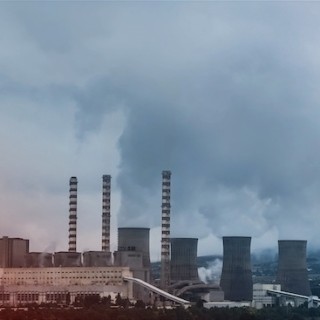
In the following months, negotiations on the Fit for 55 package, which was proposed by the European Commission in July this, year will continue. One of the key elements of these negotiations is the reform of the EU Emissions Trading System (EU-ETS). The Polish government is arguing that the number of allowances allocated to Poland will be lower than the emissions of installations covered by the ETS, creating a so-called imbalance of CO2 emission allowances. Where does the imbalance come from, and can it be reduced? And is this the most important element in negotiations of the new EU ETS? We explain below.
27.8.2021 -
10 steps to overcome the energy crisis

The prices of coal, gas, and CO2 are reaching record levels while the price for electricity is galloping, causing panic among politicians, energy consumers, and institutions responsible for maintaining Poland’s energy security. There is a state of emergency in the Polish energy sector caused by, among other things, the situation on the energy source market, but not only. The country is also bearing the consequences of many years of postponing necessary modernisation decisions. It is time to take urgent actions that match the situation.
8.12.2021 -
The capacity market in Poland―more expensive than ever

Poland has already held six power auctions. Analysis of their results shows that this mechanism in its current form is not an optimum solution for the country. The capacity market has proved more expensive than anticipated, has failed to curb the increase in electricity prices and, in addition, has contributed to the petrification of the outdated and coal-based generation structure. The arduous task of plugging the coal gap has only just begun, which is why decisions on modernisation and on methods for supporting capacity up to 2030 must be taken urgently.
13.1.2022 -
Poland has spent more than a trillion zloty (EUR 220 billion) on fossil fuel imports since 2000
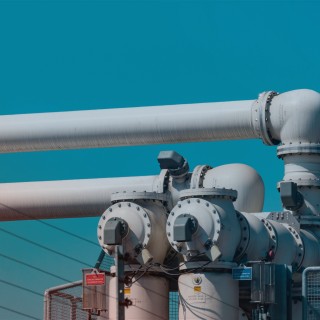
In recent months, rising energy prices have caused panic among policymakers. Gas and coal prices on world markets are at record highs, and crude oil is also becoming more expensive. In addition, Poland has become one of the EU countries most dependent on fossil fuel imports.
18.1.2022 -
Lack of transformation hikes energy prices, not climate policy

A recent information campaign led by energy companies and echoed by politicians, suggests that CO2 accounts for as much as 60% of the electricity cost. This message creates an impression that the cost of buying allowances amounts to 60 percent of the end users’ electricity bill. But this is not the case. It does a great deal of harm - it distracts attention from the fundamental problems of the Polish energy sector. It distances us from solutions that can effectively stop price increases. In this article - on the basis of adopted assumptions (presented in the annex) we present, among others, what energy prices for households are actually made of.
4.2.2022 -
Is the Kremlin turning off the gas tap? Time to exclude gas and coal from households
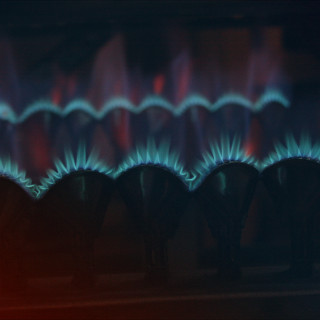
How to prepare households for an energy war with Russia? Gazprom is suspending gas supplies to Poland under the Yamal contract. This is no great surprise. At the end of this year, Poland was going to give up buying Russian gas anyway. Physically, there is unlikely to be a shortage of gas, but Poland is entering a period of high prices, which will limit the use of this raw material. The role of the state should be to wisely support society in smoothly passing through the crisis. Without reducing demand in sectors where it is possible, this will be difficult.
28.4.2022 -
Whom to ask how Poland spends billions from the Modernisation Fund?

The European Union has decided to allocate 2% of the allowances from its emissions trading system (EU-ETS) for support to poorer countries in their energy transition. Since 2021 this money is transferred to Poland, among others. The local operator – the National Fund for Environmental Protection and Water Management – has been distributing the funds without adequate public scrutiny and information. A year after taking charge of the Modernisation Fund, there is no transparent website to adequately inform society and potential applicants on what and how over EUR 11 bn (PLN 50 bn) is to be spent (and a further increase is on the table). This article deals with the consequences of the current flaws in this process and why their removal is so important for Poland.
23.5.2022 -
Ukraine’s Preparations for a Wartime Winter

Ukraine has prepared relatively well for the heating season, despite the Russian invasion and subsequent war, which has been ongoing for more than six months. The accumulated stocks of coal and gas are likely to be sufficient to ensure heat and electricity supply. The decline in demand for electric power due to reduced economic activity during the war is greater than the lost generation potential, enabling Ukraine to export electricity to the EU. The biggest challenge will be to secure heating if the Russian shelling of CHP plants intensifies. This could cause a humanitarian catastrophe in Ukraine and increase the number of refugees.
28.9.2022 -
How to maintain Belchatow's energy future

Europe is going through its biggest energy crisis ever. The attention of decision makers is focused on ensuring energy and heat supplies in the coming months. Meanwhile, long-term challenges and problems in the energy sector that have not been solved before are only accumulating. One of them is the future of the largest power plant in Poland.
15.11.2022 -
Conclusions from the 7th capacity market auction - cleaner, but adequacy remains a challenge

The results of the seventh auction in the Polish capacity market clearly show the dilemma Poland has faced - existing high-carbon (coal) capacity can no longer be supported with this mechanism, while gas is risky due to the geopolitical situation. Although Polish energy companies have not completely abandoned gas projects, fewer appeared in the auction than previously announced. There is also clearly a greater variety of technologies than before - for the first time, contracts were granted to storage. The market is still expensive - for the second year in a row auctions ended in the first round and at the maximum price.
20.1.2023
Events(5)
-
Panel expert meeting | International heating strategies | Recommendations for Poland
11.6.2018 CZIiTT, Politechnika Warszawska ul. Rektorska 4, Warszawa
Forum Energii is leading a project "Clean Heat" that aim is to support the development of a Polish country heating strategy in the context of European 2030 CO2 targets and heavy air pollution. The panel of experts on the June 11, 2018 is an element of this project and was dedicated to transition strategies of the heating sector in Europe.
-
Expert meeting | Climate and energy big picture 2030 after the European elections
4.7.2019 Warszawa
On the 4th of July, Forum Energii organized a debate on EU post-elections priorities 2030 in the field of energy and climate. What are the challenges awaiting the next European Commission and Parliament? What should be the EU key priorities regarding energy transition in the next 10 years? We discussed it within a group of key organizations from the energy, climate and transport sector.
-
Panel expert meeting | How to "green" Polish district heating?
12.5.2020 zoom
In 2019, in the Clean Heat 2030 strategy, we identified four scenarios for reducing CO2 emissions in district heating. One of them predicted its complete decarbonisation by 2050. At that time, however, we did not present in detail the technologies that could help achieve this goal. During panel expert meeting we will present those which will play the most important role in the next decade and will enable us to achieve even 40% of RES in the heating sector in 2030. Together with the Renewable Energy Institute we have analysed their costs, application and specificity. We have not ignored the state of natural resources in Poland, regulations and megatrends. All this was described in the report "RES in District Heating. Technologies that will change the reality".
-
Panel expert meeting | How to give impulse to new investments - experience of Poland and Great Britain with the capacity market
26.5.2021 zoom
The capacity market as we know it is about to end. From 1 July 2025 it will no longer be able to support coal-fired capacity. Together with rising CO2 emission allowance prices, changes in the power industry are accelerating, and we need a discussion: how to ensure security of supply by 2030, how to fill the coal gap and how to reduce emissions cost effectively. In this context, an important question is whether the capacity market still makes sense, what are the alternatives or how to change it so that it fulfils its role. The Polish energy system needs new capacities, low-carbon sources, DSR, storage and renewable sources.
-
Panel expert meeting | Fit for 55: How the EU intends to achieve increased reduction targets
30.6.2021 Cambridge Innovation Centre
In mid-July, the European Commission will announce one of the biggest legislative packages, Fit for 55. It will aim to put the EU on the path to faster reduction of greenhouse gas emissions, so that the Union can achieve the agreed goal of at least 55% reduction in 2030. The European Emissions Trading System (EU ETS) is to be reformed. Even more needs to be done to reduce emissions from buildings and transport, so the Commission wants to make proposals on carbon pricing for these sectors. All this will have an impact on the low-carbon energy, heating and transport transformation, but also on fuel and energy prices.